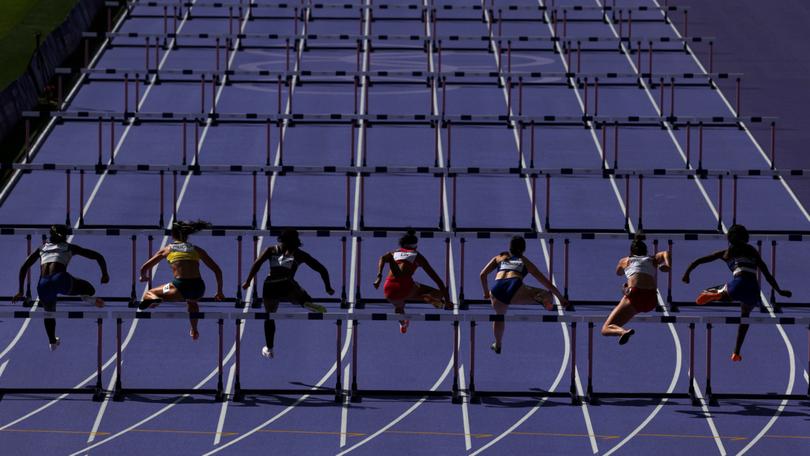World Athletics says top athletes set to face gender swab tests after Paris Games controversy

All track and field athletes wishing to compete in the elite women’s category will be required to prove they are biologically female via a cheek swab under new rules set to be adopted by the sport.
World Athletics are consulting with athletes on the impact of proposed changes to its regulations on the eligibility of transgender women and athletes with differences of sexual development.
The effect of the new proposals would be to treat both transgender and DSD athletes the same, with all athletes wishing to continue, or start, competing in the elite female category required to prove they are biologically female through a cheek swab.
Sign up to The Nightly's newsletters.
Get the first look at the digital newspaper, curated daily stories and breaking headlines delivered to your inbox.
By continuing you agree to our Terms and Privacy Policy.The test, which athletes would only need to take once in their careers, would look for the SRY gene, which is almost always on the male Y chromosome and is used as a highly accurate proxy for biological sex.
The announcement came after controversy over female boxers Imane Khelif and Lin Yu-ting who had been disqualified by the International Boxing Association in 2023.
Khelif went on to win the gold medal and subsequently filed a discrimination complaint with the French Government against Donald Trump, Elon Musk and JK Rowling over comments they made about her.
A dry spot blood test could also be used to determine an athlete’s testosterone levels, in addition to the presence of the SRY gene.
The proposals have been developed by a working group on gender diverse athletes, with the consultation period beginning on Monday and continuing until March 5.
A World Athletics Council meeting later in March is expected to set out when the new regulations could be introduced.
The current rules for DSD athletes require them to reduce their testosterone levels below 2.5 nmol/L for at least six months to compete in any female category event internationally. Previously the requirement to lower testosterone had only applied to athletes competing at distances between 400 metres and one mile.
Changes to transgender eligibility rules in 2023 banned any athlete who had been through any part of male puberty from competing in the female category.
The consultation will only seek athletes’ views on the impact of the changes. Alternative policy suggestions are not being sought as part of the consultation and it is understood it is only a question of when - rather than if - the new regulations come into force.
World Athletics president Sebastian Coe has made the protection of the female category a key pillar of his manifesto to be elected president of the International Olympic Committee next month.
He said: “Preserving the integrity of competition in the female category is a fundamental principle of the sport of athletics. Establishing clear, unambiguous policies is a critical first step.”
